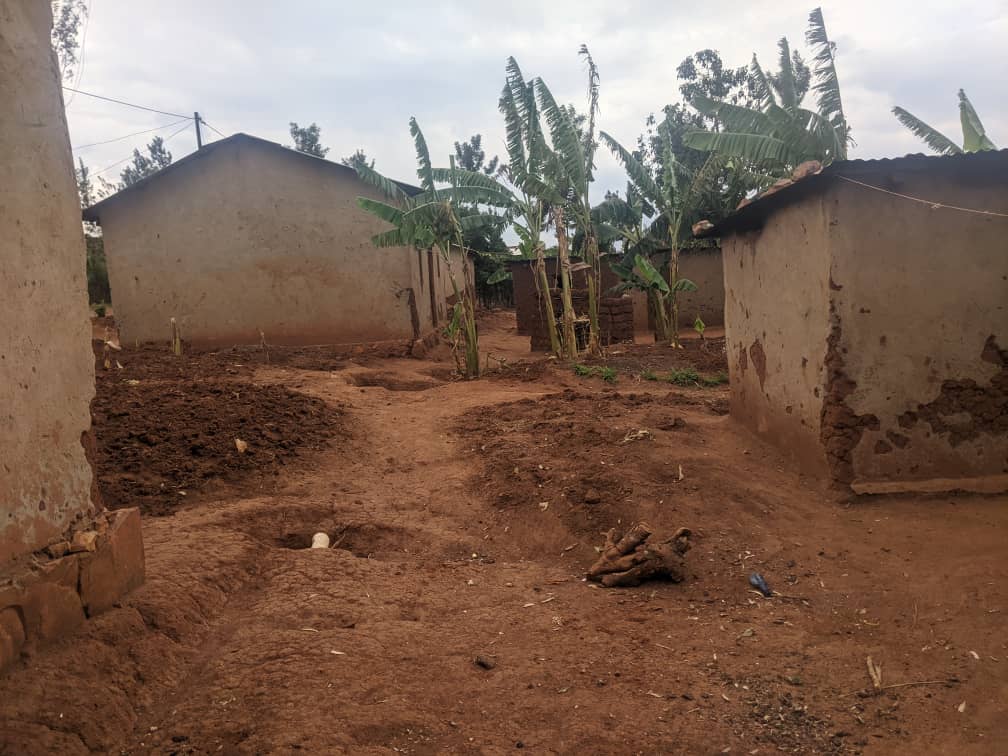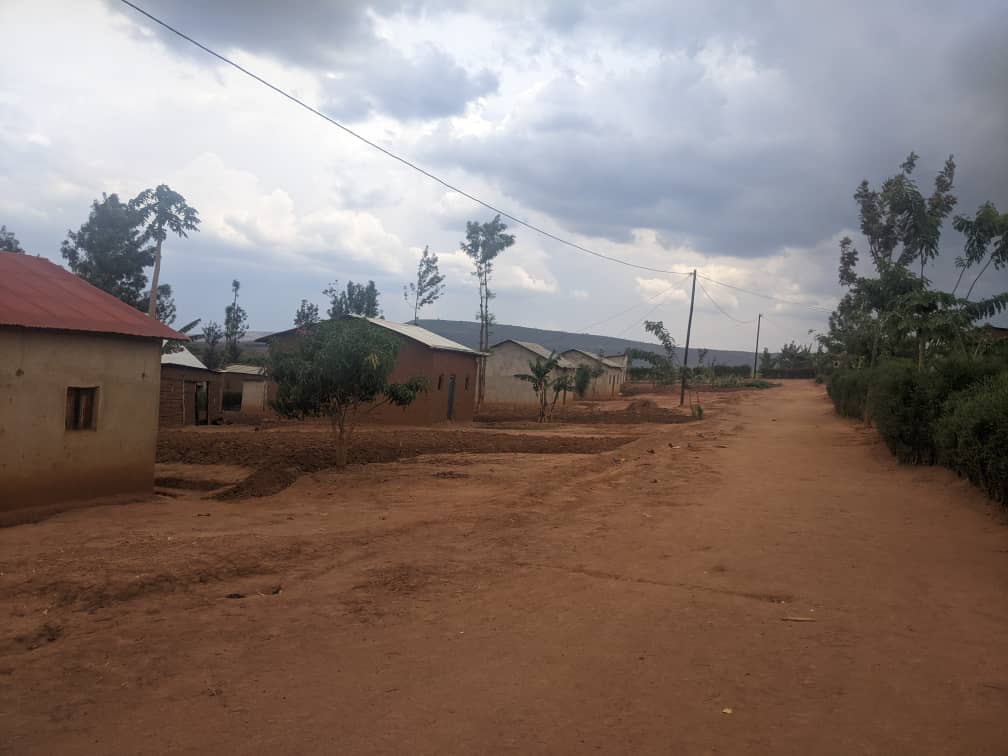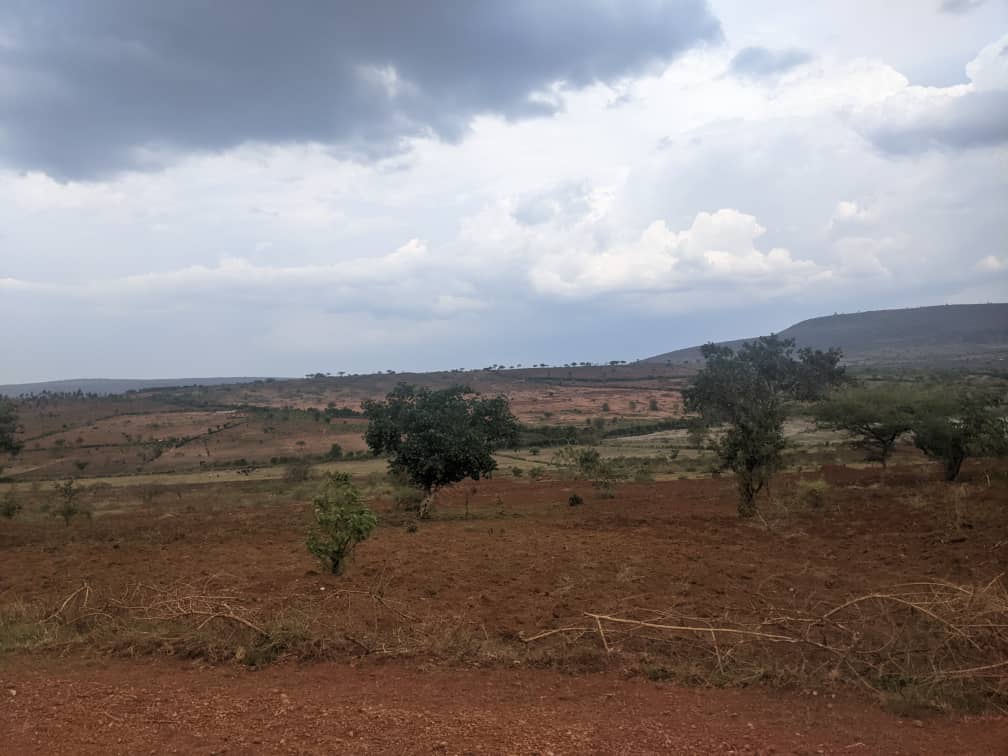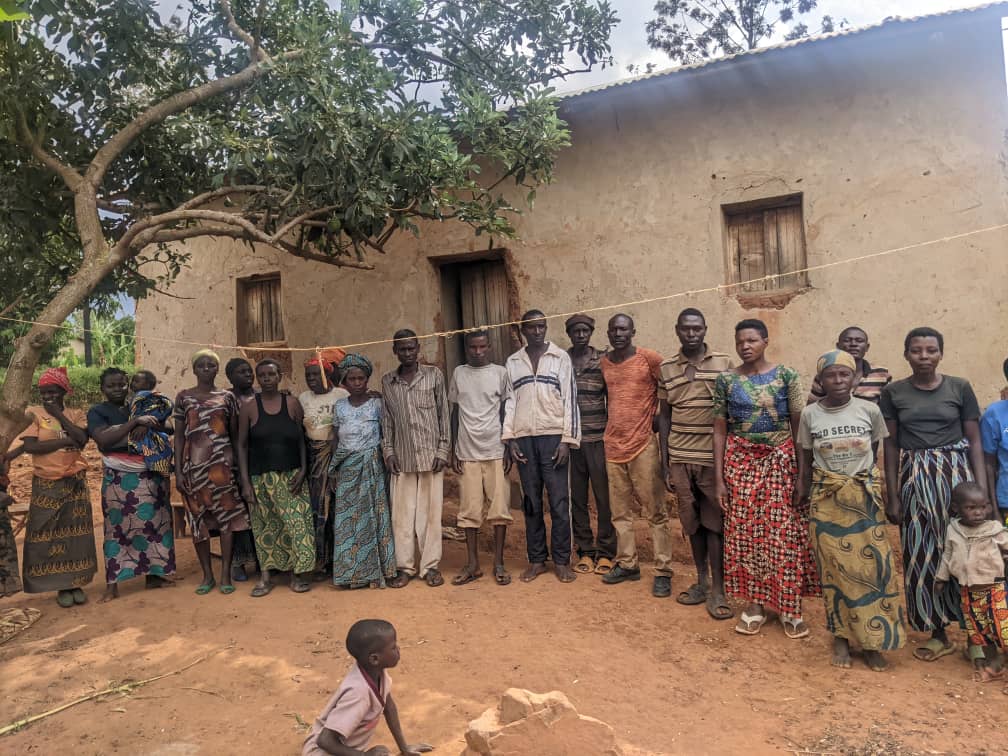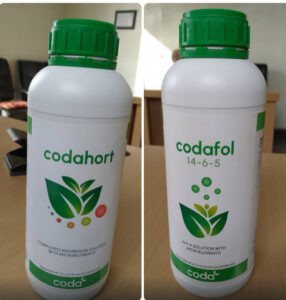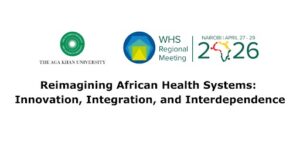By Elie Mutangana
Poverty and food insecurity have undermined some members of Historically Marginalized People (HMPs) owing to vulnerability to drought effects and limited source of income.
The community recognized as minor group in the district as well as countrywide recount a story of complexities throughout their lives that have persisted until today, in spite of government initiatives to improve their condition.
Some families who are residents of Kageyo cell, Mwiri sector in Kayonza district told this reporter that since their relocation from high-risk areas enforced by the government, their social economic condition remained deficient.
While they acknowledge that they were saved from area highly prone to disasters including landslides, their second home also never treated them friendly as drought worsened things and became an addition to other pressing challenges they reportedly face.
When they arrived on the new land, they were given shelters and small piece of land to each household, however, they say ‘it is too small to grow crops that can satisfy the families.
Naphtali Kanyabugingo, 46 has always found difficult to cater for his family of four children. When he recalls the time in the high-risk areas, basic needs such as food was not as big problem as it is today.
“Though our life in the forest was so primitive, we couldn’t feel hunger. We could make pots and other crafts to be sold for exchange of foodstuff or money. Upon our arrival here, everything stopped. We were supposed to grow crops on this small piece of land that even dried up due to lack of rain”.
Given that it is not easy and almost rare to find jobs in the area, Kanyabugingo’s purchasing power is so weak that he doesn’t afford to pay the Community-based Health Insurance, known as ‘Mutuelle de Sante’ for his family members.
The situation is so bad and unreliable, according to him. Usually, he worries and distresses when a member of his family gets sick.
“When we get sick, we go to bushes to collect some herbs, and by the grace of God we get recovered. We don’t afford the cost of health insurance. That’s why we hesitate to go to the health center because we can’t be received when we have not paid the insurance”.
He continued, “We plead the government to consider our poverty and at least pay for us the insurance. Imagine being both sick and starving, some of us end up dying”.
Claudette Mugwaneza, 26 a mother of two talked to the reporter while holding and breastfeeding her kid who helplessly looked very sick.
Her kid had been not doing well for weeks. The herbs she gave him didn’t nothing to treat him.
“I don’t know what to do. I don’t even have money to buy a kilo of flour to make a porridge for him. I, myself do not have enough breast milk”. She lamented.
All HMPs and other residents attribute the poverty to lack of jobs because of drought effects in the area. They informed that the rain stopped in mid-April and since then the sun shined sharply, affecting agricultural activities.
In particular, livestock also were affected as feed for them are very scarce, leading to low productivity of livestock produce such as milk.
Things look to have stopped in the area because 99 % of population are farmers.
While sustainable and resilient solution for food insecurity in drought prone areas is irrigation, observation by the reporter found that irrigating land in the area is at law pace.
Effects of climate change
According to Ministry in Charge of Emergency Management, climate change and variability have been observed for the last two decades in the region.
Last year, Rwanda recorded a rare upsurge of heat in different parts of the country especially in Kigali city and eastern province. A temperature of above 32 degrees Celsius was recorded.
Climatologists observe that climatic seasons in the country have dramatically changed with increase of the long dry season. Formerly, long dry season started from May to September, but currently, it starts from mid-April to mid-October, marking an unprecedented five months long of dry season.
Even when it rains, it comes as a downpour leaving hazardous effects like landslides and floods, according to the residents. Crops are severely affected, increasing the concerns about food shortage.
Reportedly, moderate and severe droughts occurred and caused serious negative impacts to socio-economic set up of the Rwandan community residing in Kayonza, Nyagatare, Bugesera, Kirehe and Ngoma Districts from the Eastern Province of Rwanda.
Deaths have been recorded due to hunger, famine and water borne diseases.
The ministry indicates that over 600 people internally displaced, other crossed borders to either Tanzania or Uganda in searching for food and casual employment.
In addition, there are cases of malnutrition in among children born to HMPs in particular.
School dropout rates among them have substantially increased, affecting social and psychological thinking and quick development of their knowledge and education skills.
“We feel like we would one day be subjected to some criminal activities such poaching as we are close to the Akagera National Park. Some could involve in drugs trafficking just for the sake of survival” another HMP member warned.
What the authority is doing?
Kayonza District says it is working with partners on a project aimed at improving the food security and incomes of at least 40, 000 rural households including the communities of Historically Marginalize people.
An undergoing project called Kayonza Irrigation and Integrated Watershed Management Project (KIIWP) is expected to build climate resilience in the region.
According to its management, the project will intervene in nine drought-prone sectors of twelve sectors in the district and Mwiri sector is among the benefiting sectors.
Other sectors include; Gahini,Kabare, Kabarondo, Murama, Murundi, Ndego and Rwinkwavu.
“We expect the project to solve drought problems and will impact positively people’s living. We hope the HMPs to definitely benefit as they will get jobs”. Mayor said
While the HMPs want the government to endorse them some unused plots of land belonging to it, for raising their crop yield. The district pledged plans to form cooperatives within HMPs and then be given some land parcels for farming.
“As we still have some unused land here, we will consider giving them some of them but provided that they are in cooperatives and willing to embrace modern cultivation. All these initiatives aim to curb hunger in our people.”
